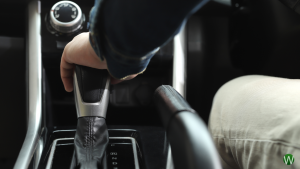DVSA keeps filming ban for driving tests
The Driver and Vehicle Standards Agency (DVSA) has reiterated its ban on audio and video recording during practical and theory driving tests, meaning the driving test selfie won’t be appearing on a social timeline near you just yet.
[Tweet “Over 1 in 5 crashes avoidable if drivers only concentrated on their job in hand”]
As a teenager your driving test is one of those major moments of your life and a big step towards adulthood. With Generation Y recording almost everything from what they had for breakfast to who they get up close and personal with then, it is no surprise that the newest members of that generation want to record their driving tests to share with their friends.
Unfortunately for them, The DVSA has announced that following a review of its existing ban on forward and rear facing cameras on driving tests, it won’t be changing that in the near future.
The DVSA will allow for those cameras that are fitted for insurance purposes, providing that they are external facing and are not filming the inside of the vehicle – so also externally fitted by the same definition.
 The recording of audio from inside the vehicle is also banned. So no cameras and no selfies for those on their theory or practical tests, for now at least.
The recording of audio from inside the vehicle is also banned. So no cameras and no selfies for those on their theory or practical tests, for now at least.
The latest guidance from the DVSA released in September 2014 is fairly brief – the Policy for filming or recording driving tests – https://www.gov.uk/government/publications/the-driving-standards-agencys-dsa-policy-for-filming-or-recording-of-driving-tests/dsa-policy-for-filming-or-recording-of-driving-tests – but it points out the application both to car and motorcycle tests and covers the use of “any type of audio or visual recording equipment” so it is pretty comprehensive.
Bad news perhaps for the extrovert future driving testees, but probably a very sensible decision.
A valuable lesson offered too by the decision, reiterating that distractions of any sort when driving can be fatal. A study of in-vehicle video footage of driver behaviour from over two million miles of journeys found 22% of crashes could be caused, at least in part, by driver distraction. It also showed that drivers who perform a secondary task at the wheel are two to three times more likely to crash.* That’s over 1 in 5 crashes avoidable if drivers only concentrated on their job in hand. With the modern world full of distractions, mainly via technology such as smartphones, tablets and wearable cameras bringing those into the driving environment is almost an accident waiting to happen.
Reiterating the dangers of distractions, by banning cameras from tests will hopefully at least make young drivers think again before switching on their distractions once they are legally behind the wheel without an instructor or examiner to remind them otherwise.
Just in case with the advent of Google Glass and the like, some think they can be clever and make a covert recording with some fancy technology either. The guidelines are clear, that if the driving examiner becomes aware of the test being recorded, the test will be stopped. If the recording equipment can’t be turned off quickly or easily, then the test candidate will forfeit not only their test, but also the test fee too.
Remember too that rightly or wrongly, your name will become familiar for the wrong reasons to the local driving examiners.
So keep those cameras switched off or used for other non-driving experiences and better still avoid all temptation and secure all your concentration but switching off all technology before you get behind the wheel of a car. If it’s switched off it can’t ring, it can’t vibrate and it can’t distract, so you can’t be in breach of any laws or risk taking your eye off the road at one crucial moment.
Sources:
*Driving study data, National Highway Traffic Safety Administration, 2006




